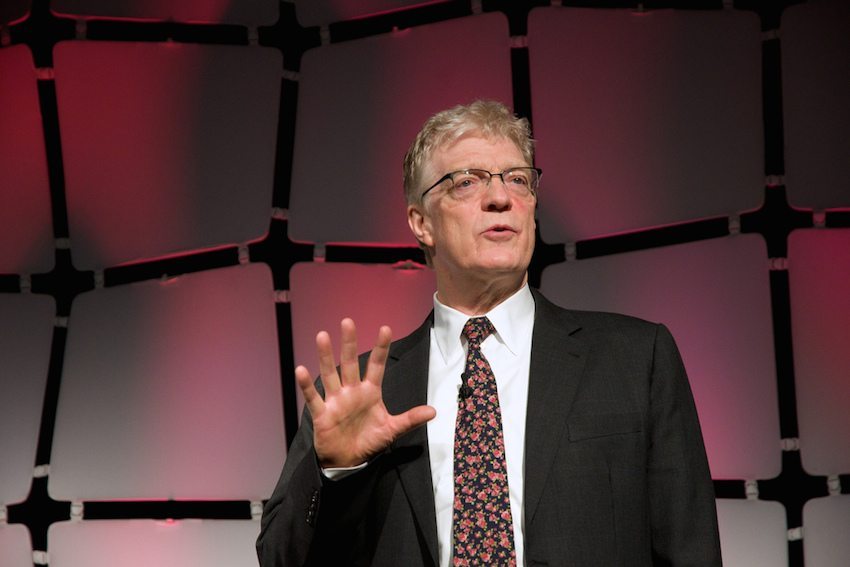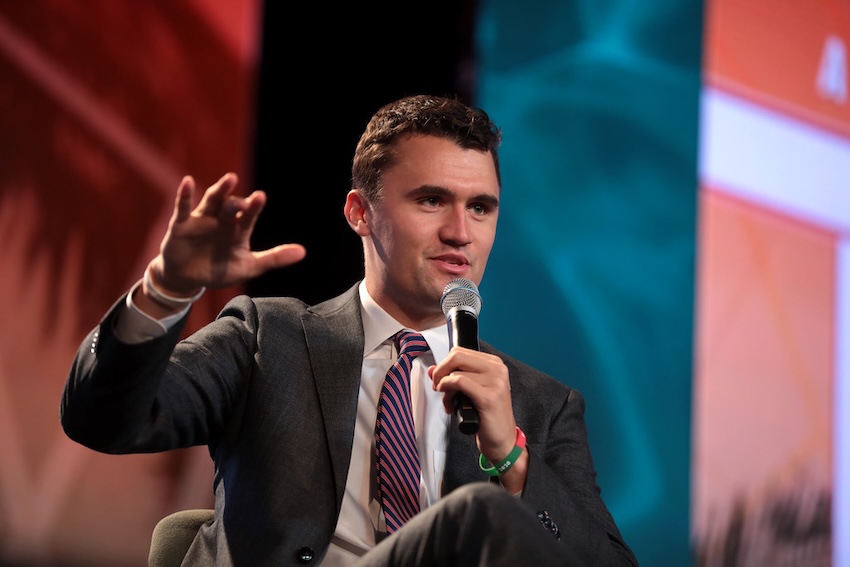
Motivational education speaker Sir Ken Robinson took the stage at the local San Joaquin Town Hall meeting, Nov. 18. With a full audience of many ages, listeners eagerly awaited what Robinson had to say. With his witty humor and interesting points, Sir Robinson quickly captivated his audience and provided an in depth look into the creativity of our minds.
From Ted Talks to his recent books, Sir Robinson has made his name known all across the world. His writings have provided a pathway and paradigm mindset on the purpose of education in the world. With over 84 million viewers on his, “Do Schools Kill Creativity?” Ted Talk, Sir Robertson became a household name in the reforming of education.
One of his books, “Out of Our Minds: Learning to be Creative” published in 2001, refers to the different reasons why creativity is undervalued and set aside. Another one of his publications, “The Element: How Finding Your Passion Changes Everything” talks about finding your personal creativity that everyone has access to.
Over the years Sir Robertson has received numerous awards for his contributions in service to the arts. In recognition of all his accomplishments, in 2003 Sir Robinson was knighted by the Royal Family in England. During the town hall meeting, Sir Robertson focused on the topics of, “Why is it essential to promote creativity?” and, “Why do so many adults think they’re not creative?” In regards to these questions, Sir Robertson argued for reform in the process of educating students in the 21st century.
Jenny King shares how Sir Robison affected her view of creativity.
At my first town hall meeting, the experience was inspiring and worth sharing with FC staff and students. Educational expert Sir Ken Robinson spoke about the importance of creativity and arts in education today. As a student it can be tiring to have a constant load of work in school and out. I agree that exploring creativity is a great way to free students who are bound to homework and standardized tests. It seemed to me that Sir Robinson was speaking what many students feel towards standard testing; this made his speech relatable and worth listening to.
“You can be creative in anything-in math, science, engineering, philosophy-as much as you can in music or in painting or in dance, ” Sir Robinson said. Each person in the world is different, we can all reach a level of creativity that can be useful. In many schools today arts are lacking and not as stressed as academics. But I think that students can use their creative talents for something useful in some way or another. Sir Robinson stressed that standardized testing makes students feel like they have to scale up to the best score. But simply not everyone is made the same; we each have different motivations.
I didn’t really think that creativity was that important before, but after hearing Sir Robinson I learned that our creativeness can be just as important as our academics. It is time for our creativity not to be ignored and to be accepted because it can be used for a good cause. As I was sitting in the red seats I listened to a topic that I rarely hear about: creativity. But the thing is our creativity and unique gifts shouldn’t become a rare topic to hear. We can’t forget the side of creativity that should be and can be useful in our day and age. Its about time that we realize that academics may not be what we always believed it to be: the center of everything.
Justin Houts agrees with Sir Robinson’s ideas on creativity in schools.
I thoroughly enjoyed my first experience at the town hall. Sir Ken Robinson’s ideas resonated with myself, as well as many other students and education faculty in the audience. We have fallen so far from where we started, and are simply continuing to build on a broken system. If we truly want well rounded and adaptive students, we need to start by encouraging creativity in our classrooms.

We can do so by offering a wide arrangement of learning opportunities, and not just keep throwing money to math and English departments. Another large source of wasteful spending that could be better utilized is the $16 billion standard testing industry. If instead of focusing on a standard level to compare students (in one or maybe two subjects) and then scrutinize the results, categorizing students into different levels of ‘intelligence’, we spent the money on reinstating elective classes in schools, increasing the funding to the arts and music, and encouraging students to try new things, we would see a generation that would much more easily modify to the ever changing world around them.
My biggest takeaway from Sir Robinson’s speech was that this problem is spiraling out of control. We are going deeper and deeper into this mindset of ‘core’ classes being what defines an individual. Change needs to take place on a physical and cultural level if we are to change our narrow mindsets, and embrace a more realistic perspective of talent. I believe Sir Robinson also made very good points about why it’s important from a logistical standpoint to become well rounded individuals. In his latest book, ‘Out of Our Minds; Learning to be Creative’, Sir Robinson says, “Education is not a linear process of preparation for the future: it is about cultivating the talents and sensibilities through which we can live our best lives in the present and create the future for ourselves.”
The best way to prepare today’s youth for whatever lies ahead is to promote and encourage diversity among students, and constantly be working with students to find their unique talents and abilities. In doing this, we can ensure an adaptive, flexible generation that can be prepared for whatever events take place in their lifetimes’.
To hear more about Sir Ken Robinson go to Twitter: @SirKenRobinson and Facebook: SirKenRobinson.




